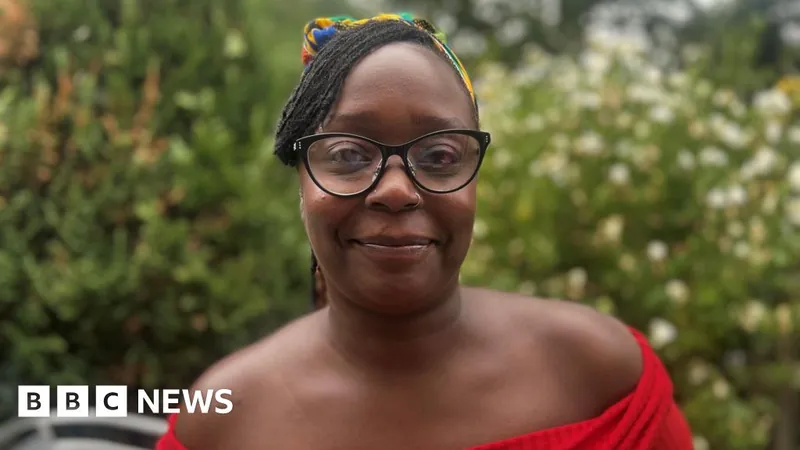
How an HIV Diagnosis Transformed a Life for the Better
2025-09-09
Author: Yu
From Menace to Mindfulness: Leasuwanna Griffith's Journey
Leasuwanna Griffith's life took an unexpected turn when she received her HIV diagnosis during pregnancy in 2003. Recalling her past, she describes herself as someone who was poised to become a "menace to society" before her diagnosis. The revelation, however, was a turning point that reshaped her perspective: "Getting HIV calmed me down. It made me more aware of other people and their feelings. It humbled me in a good way," she reflects.
Facing Challenges as a Black Woman
Despite her transformative experience, Leasuwanna faced significant challenges early on, particularly due to a lack of support tailored to her needs as a black Caribbean woman. "The options were focused on gay men or African communities. There was nothing related to my culture," she laments. With a prognosis that felt like an expiry date, she lived each day intensely, although she recognizes how detrimental this mindset could be, especially for a mother.
Empowering Others with the Phoenix Health Movement
Today, Leasuwanna channels her experiences into activism, working with the Phoenix Health Movement, a charity focused on supporting black women living with HIV. Co-founder Susan Cole emphasizes an urgent need for more testing facilities in everyday spaces like nail bars, cafes, and libraries — places women frequent, which could remove barriers to testing.
Alarming Rise in HIV Diagnoses Among Women
Recent statistics from the UK Health Security Agency show a troubling 17% increase in new HIV diagnoses in London from 2021 to 2022, with black Africans constituting 20% of these cases. This upward trend is also mirrored in the increasing diagnoses among black women, highlighting a significant gap in targeted health services.
Breaking Down Stigma and Barriers to Testing
Susan Cole articulates the pressing need for services to cater specifically to black women, noting that many feel uncomfortable at sexual health clinics due to stigma and discrimination. A report by the London HIV Prevention Programme highlighted the ongoing disparities in HIV diagnoses among black heritage communities, underscoring the urgency of addressing stigma and improving access to care.
Outreach Efforts to Combat HIV Rates
Organizations like Spectra are actively tackling this issue by bringing HIV services directly into communities. CEO Joel Robinson stresses the importance of establishing trust: "Conducting outreach in libraries, cafes, and barbershops helps us reach people in safe spaces, allowing them to engage with our workers more comfortably." He also notes that HIV is increasingly impacting diverse groups, including heterosexual individuals and older populations, highlighting a broader community health challenge that demands a concerted response.


 Brasil (PT)
Brasil (PT)
 Canada (EN)
Canada (EN)
 Chile (ES)
Chile (ES)
 Česko (CS)
Česko (CS)
 대한민국 (KO)
대한민국 (KO)
 España (ES)
España (ES)
 France (FR)
France (FR)
 Hong Kong (EN)
Hong Kong (EN)
 Italia (IT)
Italia (IT)
 日本 (JA)
日本 (JA)
 Magyarország (HU)
Magyarország (HU)
 Norge (NO)
Norge (NO)
 Polska (PL)
Polska (PL)
 Schweiz (DE)
Schweiz (DE)
 Singapore (EN)
Singapore (EN)
 Sverige (SV)
Sverige (SV)
 Suomi (FI)
Suomi (FI)
 Türkiye (TR)
Türkiye (TR)
 الإمارات العربية المتحدة (AR)
الإمارات العربية المتحدة (AR)